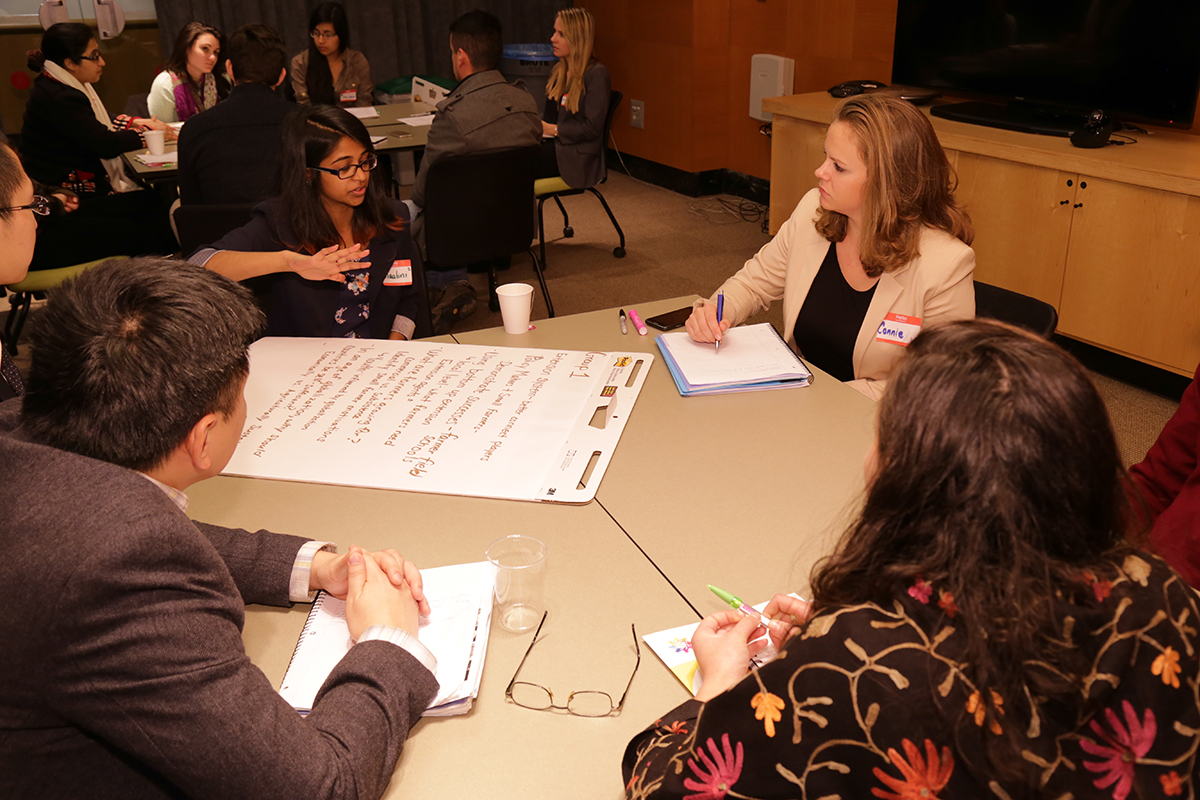Students engage in FAO biotech policy talks from Ithaca
By Rebecca Harrison

Connie Potter ’16 delivered a set of policy recommendations drafted by 25 Cornell students to policymakers at the Food and Agriculture Organization’s (FAO) International AgriBiotech Symposium in Rome via webinar from the Ithaca campus.
The student-led biotechnology and sustainable food systems event was part of an international symposium on “The role of agricultural biotechnologies in sustainable food systems and nutrition,” held at FAO Headquarters, Feb. 15-17.
“This conference was a rare and valuable opportunity for undergrads to voice their concerns about biotechnology on a larger scale, to learn directly from policymakers about the challenges that face the agricultural industry,” said Potter, who helped organize the event. “It was thrilling to speak with the professionals on the panel and to know that student voices were being heard on a topic important to people all around the world.”
Over the course of two days, the satellite webinar featured breakout sessions hosted by on-campus experts on topics including climate change, health and nutrition, and the social and economic impacts of biotechnology; and a live-streamed presentation of the collaboratively drafted statement.
“As a land-grant institution, Cornell is well-positioned to be a leader in developing new technologies and promoting their use,” said Ronnie Coffman, international professor of plant breeding and director of International Programs in the College of Agriculture and Life Sciences. Coffman encouraged students to become more engaged.
“The biggest challenges facing society will only be resolved by placing science and technology within social and economic contexts. Global problems demand global solutions,” said Coffman, who, along with Laura Spitz, Cornell vice provost for international affairs, addressed students.
Cornell students reminded policymakers of the scientific community’s responsibility to communicate the benefits and limitations of research in their policy statement. “This is especially true in agricultural biotechnology, where the objections move beyond those which science can answer. Policymakers must reconcile with competing economic and development interests, while still amplifying the voices of their constituents,” said Potter during her presentation.
Student policy recommendations included additional support for agricultural extension systems, which provide a “way in” for policymakers and researchers to work with smallholder farmers; the need to embrace innovative solutions to foster successful networks and precise capacity building; and, for the scientific community, to become comfortable with failure as a necessary part of the scientific method.
“It was fascinating to see a complicated topic often debated in my classes take on a different form and scale when placed on a global agenda at the FAO,” said Shaalini Ganesalingam ’18, an international agriculture and rural development student. “Voicing my own opinion alongside several well-respected scientists, businessmen and policymakers gave me the opportunity to see how interdisciplinary and diverse responses to new technology can be, and how extraordinarily important it is to develop a global ethical standard [around this technology].”
In addition to support from the FAO, the Cornell University Student Symposium was co-sponsored by the Cornell Alliance for Science and the Cornell University chapter of the Alpha Zeta professional agricultural fraternity.
Rebecca Harrison ’14 is a social media specialist with International Programs in the College of Agriculture and Life Sciences.
Media Contact
Get Cornell news delivered right to your inbox.
Subscribe